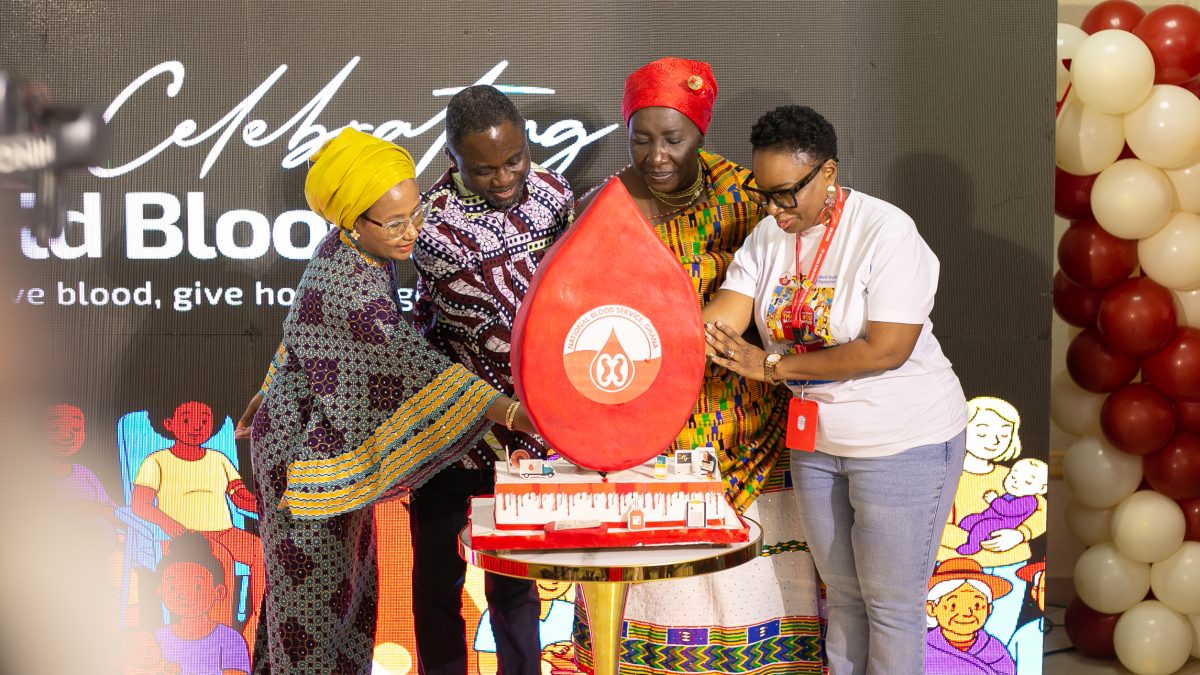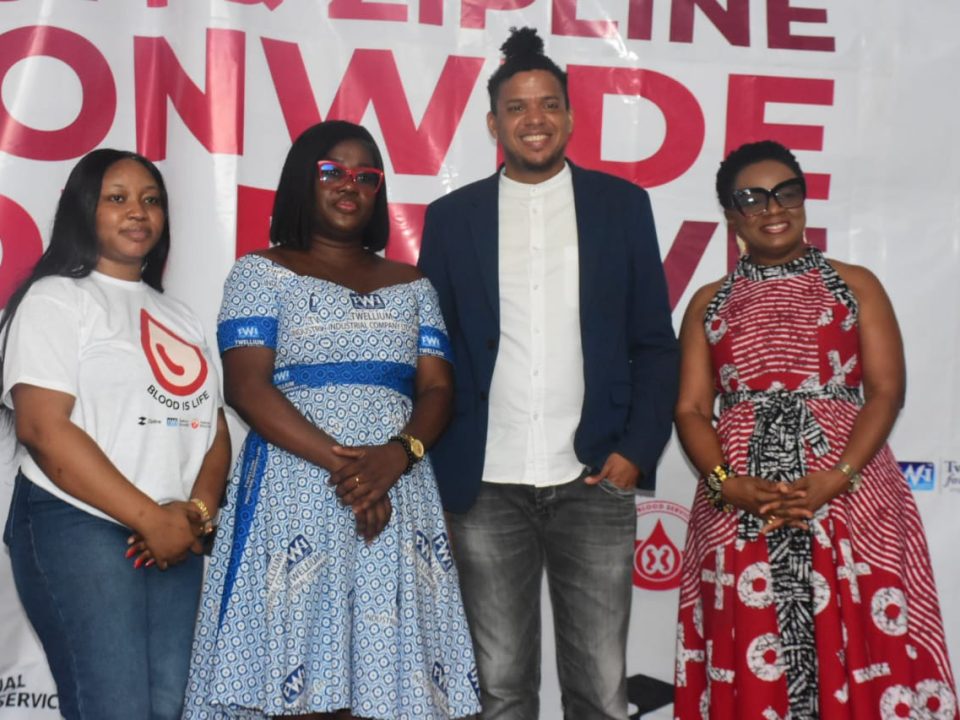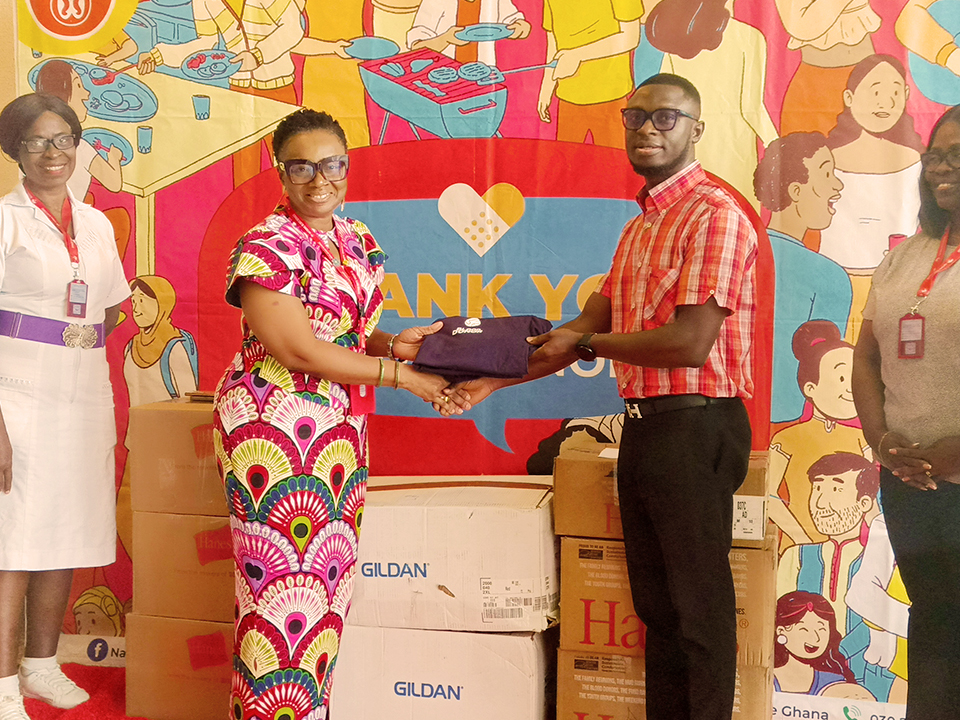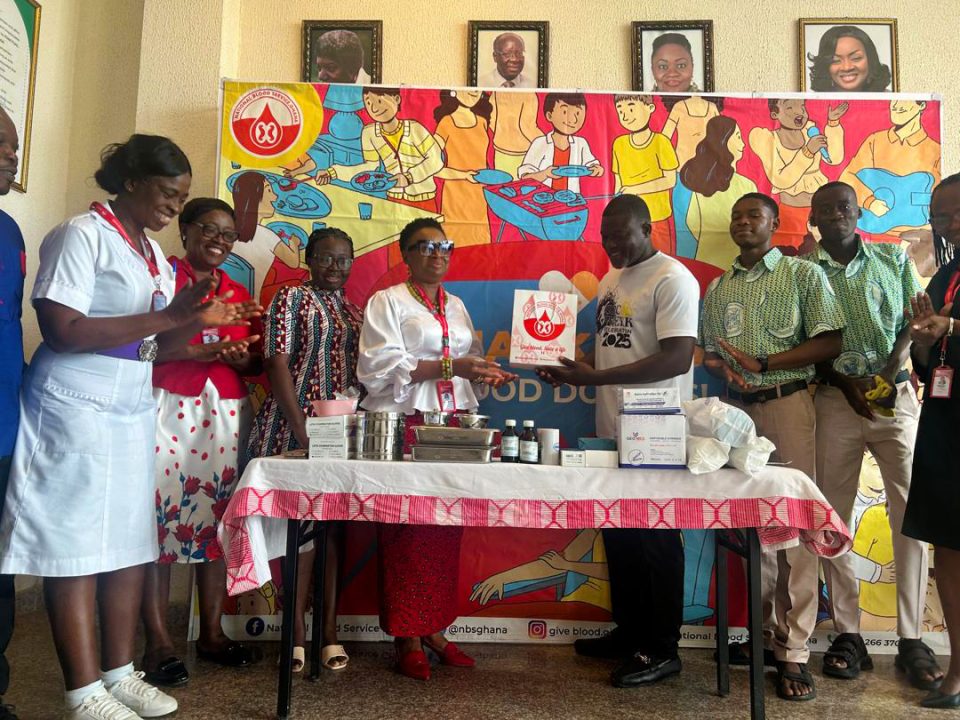On 23 May 2005, at the 58th World Health Assembly, Health Ministers unanimously declared their commitment to voluntary blood donation through Resolution WHA 58.13. In honour of Karl Landsteiner, the Austrian-American biologist who discovered the ABO blood group system. They designated 14 June as World Blood Donor Day.
On Friday, the 13th of June 2025, the National Blood Service Ghana commemorated World Blood Donor Day as part of its yearly activity to honour distinguished donors and institutions across the country for their voluntary contribution towards blood donations.
Speaking at the event under the theme “Give blood, give hope, together we can save lives”, the Chief Executive Officer for the National Blood Service Ghana, Dr. Shirley Owusu-Ofori, expressed her deepest gratitude to Ghana’s blood donors, whose life-saving contributions have profoundly impacted countless lives across the nation, emphasising donation of blood by an individual celebrates our collective solidarity and the simple act that unites us in saving lives.
Highlighting the achievements of the National Blood Service last year, the CEO said Ghana’s Blood Donor Programme has achieved modest gains.
“Last year, we collected 187,280 units of blood, meeting 99% of our target, with 29% from voluntary donors. Our blood collection index rose from 5.9 to 6.1, and over 45,000 units were processed into life-saving components.”
Speaking on challenges hindering donations and how to resolve them, the CEO said that despite willingness, many potential donors struggle to access blood donation sites easily. As part of efforts to remedy the situation, the NBS Board resolved to establish Regional Blood Centres across the nation to complement the existing three (3) centres currently.
“We face an infrastructure gap: acknowledging the commitments so far made, the NBS currently have no operational apheresis machines. Existing units require repair, but restoring this capability is critical to support the increasing demands placed on the National Blood Service by healthcare facilities”, the CEO posited.
The Minister for Health, Hon. Kwabena Mintah Akandoh (MP), in his address, said that under the ‘Mahama Cares’ policy framework, the Health Ministry will actively explore targeted subsidies, particularly reducing or abolishing blood processing fees paid by patients to enhance affordability and equity in blood services. This, however, would not be possible without parliamentary approval, he added.
Acknowledging the challenges of the National Blood Service, the Hon. Minister urged institutions including the National Commission for Civic Education (NCCE), the Ghana Journalists Association (GJA), the Private Newspaper Publishers Association of Ghana (PRINPAG), the Ghana Independent Broadcasters Association (GIBA), and the Health Promotion Division of the Ghana Health Service (GHS) to intensify nationwide education campaigns targeting schools and universities, thereby reigniting the spirit of volunteerism in blood donation.
The commemoration was attended by key stakeholders, including the WHO Ghana country representative, officials from MTN, Zipline, NABDAG and Melcom Ghana.





